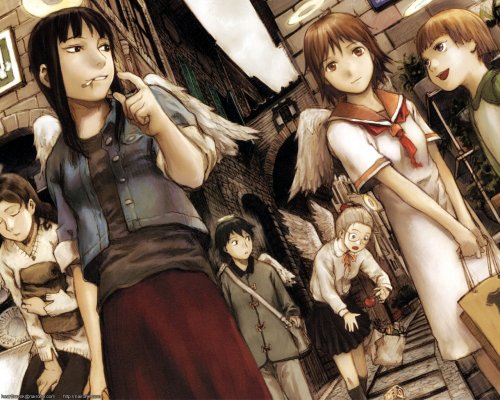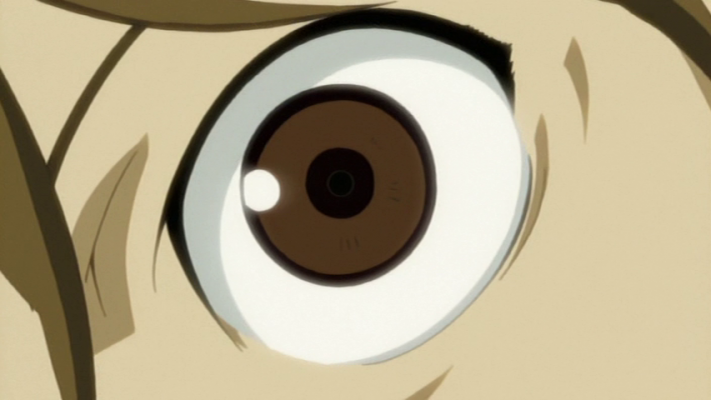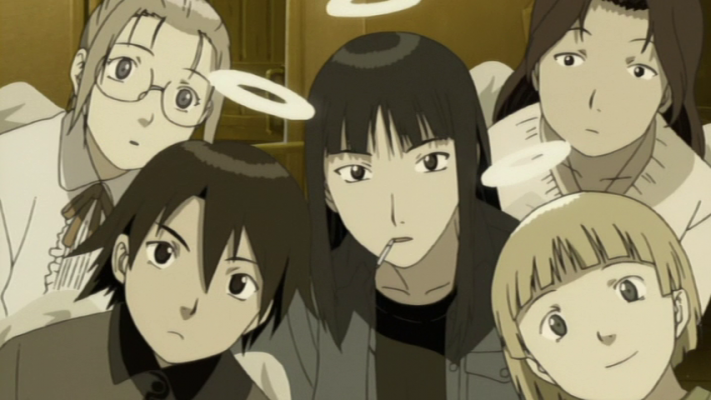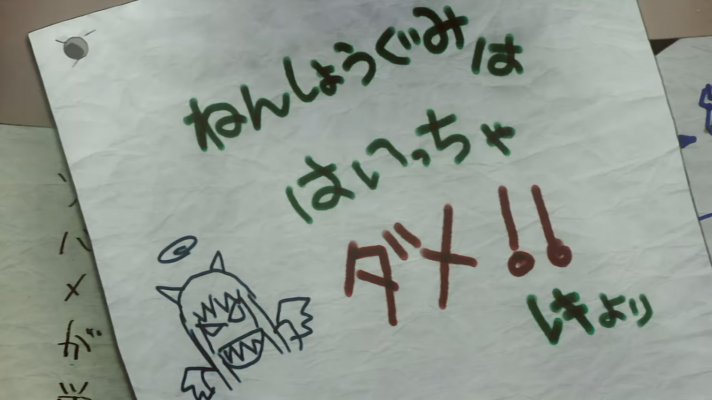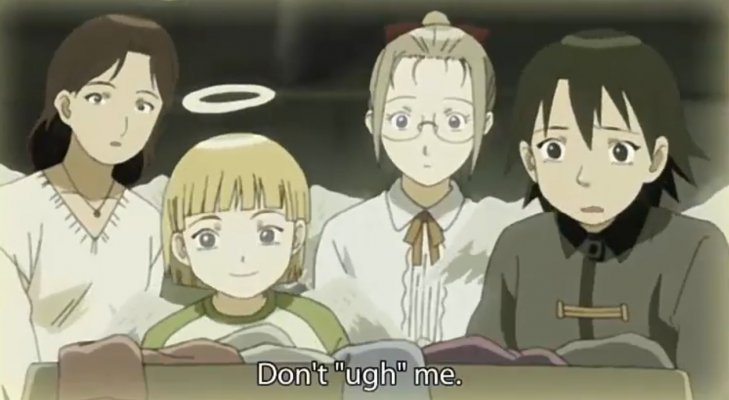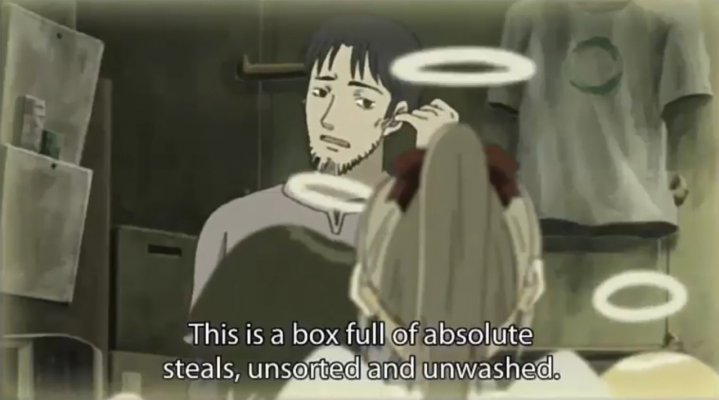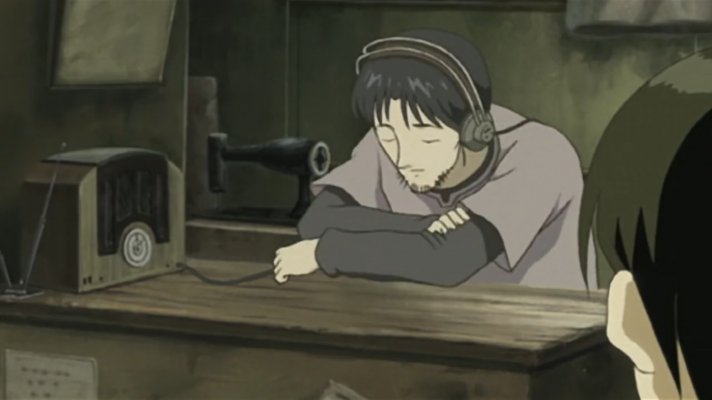Episode 1
I had watched a few episodes a little while ago but didn't get a chance to finish it for various reasons, a lack of interest not being one. The first episode is an intro fit for a mystery series, primarily experienced from Rakka's viewpoint as a "newborn", with other Haibane starting to introduce the apparently new world and customs.
I also very much second
@ayase for the parallels with childbirth, primarily the wings that were more akin to human childbirth with the primary effort being from the "mother", versus the earlier non-mammalian effort of the "newborn" itself mustering the strength to survive and break through the
shell cocoon. On that note, it seems we've got most of the animal kingdom characteristics covered here in the nature of the Haibane, with the mammalian/human appearance, avian features in the wings and then the somewhat overlapping aspect with insects (as opposed to reptiles?) in the eggs being cocoons, and lastly maybe even fish in that Rakka could breathe within the fluid in the cocoon despite the absence of an obvious umbilical cord - would be interesting to see if Haibane can breathe underwater. But in the end, I'm pretty sure I'm just overthinking all of this here.
On the metaphysical aspects, the sepia tone as
@ayase mentioned, does evolve a sense of purgatory to me as well, neither being the beautiful, bright and colourful expectation of a heaven, nor the dark & menacing image one may choose to have of a hell. The Haibane form is clearly not the origin point of these characters given that, despite no memory recollection, Rakka is intrinsically aware of having a different name previously, being human and having a notion of what a family is. Hence the viewer is further lead to believe the possibility of this being a rebirth or afterlife. Forgive my clunky analogies but the memory being wiped could be analogous to a hard disk format with, as they say, not everything being entirely deleted nor permanently? However this format affects not only the individual but the world as a whole, i.e. don't bother going to look for your ex-family as neither party would be able to recognize nor have any memory of the other. This world has rules and boundaries also. What is the purpose of the adornments that are the halos (apart from some welcome comic relief)and where do they come from (the same source as the rules one presumes)? Do they serve an existential function, like the air one needs to breathe, or are they security monitors, like asbo tags?
Lots of questions to ponder but as
@Professor Irony mentioned, best not to dwell too much, and more important to enjoy the ride.
